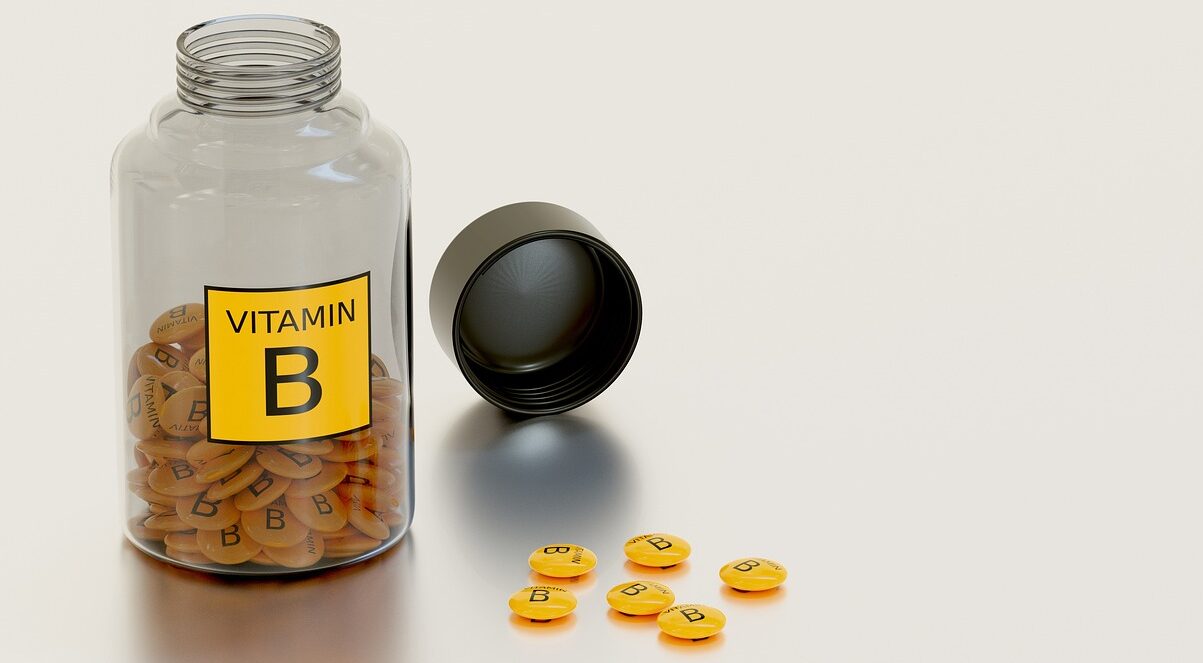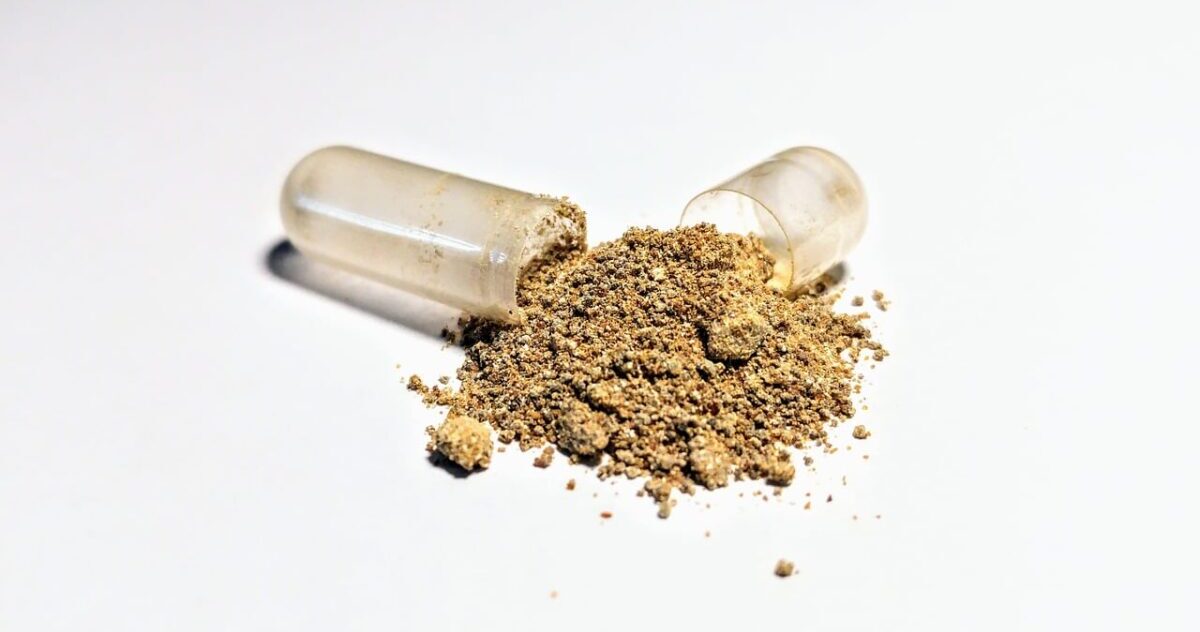Life can be tough, and many of us can struggle now and again with a lack of energy. This might be overcome with a couple of early nights. Alternatively, doing some exercise can do the trick. This may sound counter-intuitive, but doing physical exercise goes a long way in increasing energy and also help you sleep better (1).
Sometimes, eating a healthy diet is not always practical, in which case, there are a few supplements available that can help give you an energy boost to get you through the day. Here are some of the best options for increasing energy and one for increasing endurance:

Caffeine
Had your shot of java today? It is common for people to reach for a cup of strong coffee to get them going in the morning or boost them through the afternoon slump. This is because it contains caffeine, which is a natural stimulant that can boost energy levels and improve mental alertness. Caffeine is also in tea, energy drinks, and supplements. Adenosine is a neurotransmitter that increases as the day goes on and makes us feel tired and ready for sleep. Caffeine gives us more energy by blocking adenosine. This makes us feel less tired and more alert (2).
It can also increase the production of other neurotransmitters, such as dopamine and norepinephrine, which can improve mood and cognitive function. The effect of caffeine on dopamine is why we become addicted to caffeine (3).
If you want to know if it’s better to get caffeine from coffee or a supplement, the answer depends on your preferences and the situation. Coffee contains other compounds that can provide additional benefits, such as antioxidants (4). However, it can also have negative effects. These include causing anxiety, heart palpitations, or disrupting sleep (5). On the other hand, supplements can provide more precise dosing and are often formulated with other ingredients that can increase the effects of caffeine or reduce potential side effects.
It’s important to note that caffeine affects everyone differently, and some people may be more sensitive to its effects than others. You can also get used to caffeine over time (3), which can make it less effective at increasing energy and keeping you awake. Caffeine is best used in moderation, and you should keep an eye on how it affects your body and health as a whole.
Iron is well known for increasing energy
Iron is important for keeping us energetic. This is because iron is necessary for the production of haemoglobin, which carries energy-giving oxygen in the blood and delivers it to every cell in the body. Low iron levels can lead to anaemia and fatigue and make it difficult to concentrate.
If you’re feeling sluggish on a regular basis, it may be a sign that you need this supplement. Women, in particular, may need to have their iron levels checked, as iron can be lost, especially if menstruation is particularly heavy. This can lead to anaemia, fatigue, weakness, and a lack of energy (6). If anaemia goes untreated, it can lead to pica (eating non-food items) (7), swollen lips (cheilitis), restless legs, and hair loss (6).
If you have been diagnosed with iron deficiency anaemia, your doctor may recommend iron supplements to help increase your iron levels and improve your energy levels. Iron supplements can cause side effects, such as constipation, stomach upset, and nausea. To reduce these side effects, it is better to take iron supplements when eating. Another way to reduce these side effects is to start with a low dose and gradually increase it so that you can see how well you tolerate it (8).
Iron supplements can affect how well drugs such as antibiotics and those used to treat Parkinson’s disease or seizures work. Therefore, it is best to leave a couple of hours in between taking medication and iron supplements. Orange juice is a great to drink when taking iron supplements because vitamin C can help the body absorb the iron more easily (8).
With regard to food, it is a good idea to boost your iron intake to keep your energy levels up by eating plenty of leafy vegetables, red meat, fish, seafood, beans, and legumes (9).

B Vitamins, simple path to increasing energy
B vitamins are essential nutrients that play a crucial role in turning food into adenosine triphosphate (ATP), which a form of energy. There are eight B vitamins. These include thiamine, known as vitamin B1; riboflavin, known as vitamin B2; niacin known as vitamin B3; pantothenic acid known as vitamin B5; pyridoxine known as vitamin B6; biotin known as vitamin B7; and folate known as vitamin B9. These B vitamins all work to help the body get energy from food.
When we eat food, carbohydrates, fats, and proteins are broken down into simpler compounds. These compounds are glucose, fatty acids, and amino acids. B vitamins are involved in various reactions that help convert these compounds into energy (10).
Vitamin B12
Vitamin B12, also known as cobalamin, is an essential vitamin that plays an important role in the production of red blood cells and DNA, as well as the proper functioning of the nervous system. Not getting enough vitamin B12 can lead to anaemia, fatigue, weakness, and decreased energy levels.
Vitamin B12 is mostly found in animal products, such as meat, fish, and dairy. Therefore, it can be tricky for vegetarians and vegans to get enough. In these cases, a vitamin B12 supplement is helpful for increasing energy levels and improving overall health. However, it’s important to note that vitamin B12 supplements are not a magical cure for low energy levels. This is because some people, no matter how much vitamin B12 they take in through diet or supplements, cannot absorb it. In this case, it may be necessary to have the vitamin injected directly into the bloodstream on a regular basis. This has to be done by a medical practitioner (11).
Coenzyme Q10 helps with increasing energy levels
Coenzyme Q10, also known as CoQ10, is found in every cell in the body. It is important to produce energy in the form of ATP. While the body can produce CoQ10 on its own, the amounts produced can decrease as we age. Some medications and some health conditions can also reduce the amount of CoQ10 that our body produces. When this happens, taking a CoQ10 supplement helps with increasing energy levels (12).
CoQ10 supplements should not be taken if you are on medication for cancer, high blood pressure, or blood thinning. In addition to its role in energy production, CoQ10 also has antioxidant properties, which can help protect cells from oxidative damage and may help improve overall energy levels and reduce fatigue (13).
Ashwagandha: natural supplement for increasing energy and stamina

Boost your stamina while increasing energy and amp up your performance with the natural adaptogen Ashwagandha, a game-changer for anyone looking to push their limits and achieve optimal results in their workouts. Ashwagandha, also known as Withania somnifera, is an ancient herb that has been used in traditional Ayurvedic medicine for centuries. It is known for its ability to improve endurance and reduce fatigue, making it a popular choice among athletes and fitness enthusiasts.
Ashwagandha works by reducing the levels of cortisol, a stress hormone that can negatively impact energy levels and performance. Additionally, it helps increase the production of adenosine triphosphate (ATP), the main source of energy in our cells. This dual action of reducing stress and increasing energy makes Ashwagandha a valuable supplement for anyone looking to enhance their energy and endurance levels.
Overall, these supplements can help give you an extra boost when you need them. Just make sure to talk to your doctor if you are experiencing a lack of energy or feeling tired regularly.
- Exercise: 7 benefits of regular physical activity https://www.mayoclinic.org/healthy-lifestyle/fitness/in-depth/exercise/art-20048389
- Arousal Effect of Caffeine Depends on Adenosine A2A Receptors in the Shell of the Nucleus Accumbens https://www.ncbi.nlm.nih.gov/pmc/articles/PMC3153505/
- Caffeine: It’s a Drink, It’s a Dessert, It’s a Drug https://www.psychologytoday.com/us/blog/1-2-3-adhd/201807/caffeine-it-s-drink-it-s-dessert-it-s-drug
- Antioxidant and Antiradical Activity of Coffee https://www.ncbi.nlm.nih.gov/pmc/articles/PMC4665516/
- How caffeine affects your body https://www.bupa.co.uk/newsroom/ourviews/how-caffeine-affects-body
- Iron Deficiency in Menstruating Adult Women: Much More than Anemia https://www.ncbi.nlm.nih.gov/pmc/articles/PMC7784796/
- Pica in iron deficiency: a case series https://www.ncbi.nlm.nih.gov/pmc/articles/PMC2850349/
- Taking iron supplements https://medlineplus.gov/ency/article/007478.htm
- 52 Foods High In Iron https://health.clevelandclinic.org/how-to-add-more-iron-to-your-diet/
- B Vitamins and the Brain: Mechanisms, Dose and Efficacy—A Review https://www.ncbi.nlm.nih.gov/pmc/articles/PMC4772032/
- Vitamin B12 https://www.hsph.harvard.edu/nutritionsource/vitamin-b12/
- Coenzyme Q10: The essential nutrient https://www.ncbi.nlm.nih.gov/pmc/articles/PMC3178961/
- Coenzyme Q10 https://www.mountsinai.org/health-library/supplement/coenzyme-q10
- The impact of dietary supplement NT-020 with Rhodiola rosea on energy, fatigue, and perceived exertion https://ffhdj.com/index.php/ffhd/article/view/656
- Rhodiola rosea https://www.sciencedirect.com/topics/neuroscience/rhodiola-rosea
- The Health Benefits of Rhodiola https://www.verywellmind.com/how-is-rhodiola-rosea-used-to-treat-anxiety-3024972
- Rhodiola https://www.msdmanuals.com/en-gb/home/special-subjects/dietary-supplements-and-vitamins/rhodiola
